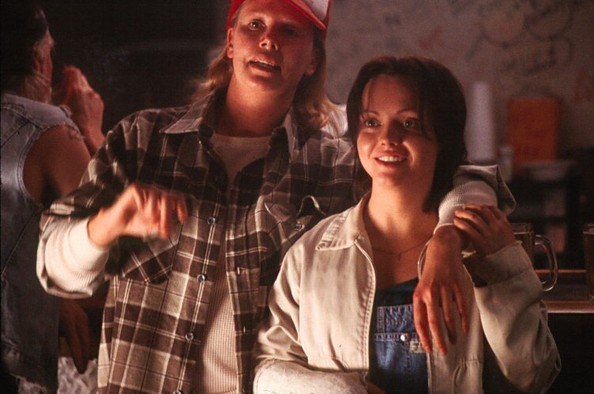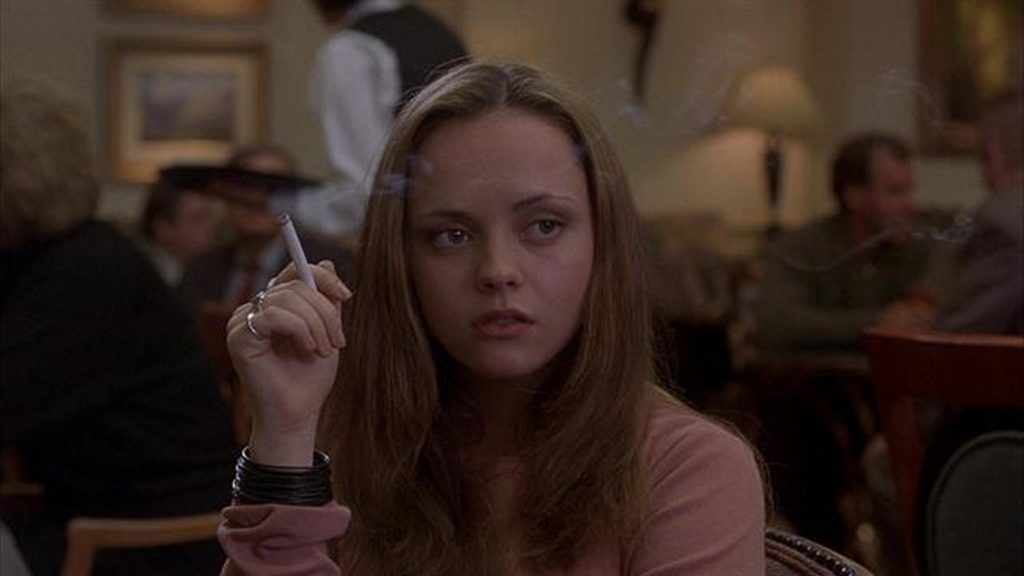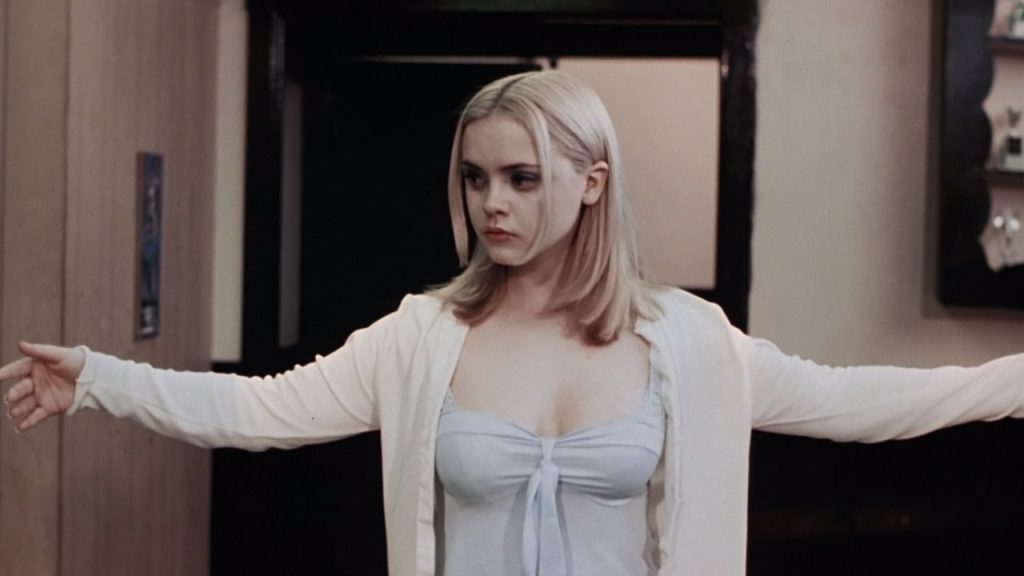Monster (2003)
director. Patty Jenkins
writer. Patty Jenkins


Monster is a film that lacks any victory, a crushing reality that not everyone gets a chance for something better in life. Some people live a cruel life, experience cruel things, and meet a cruel end. I don’t know the in-depth story of the real-life Aileen Wuornos, but I know the character of this film is a trod down woman who was only try to survive in an unfair world.
Charlize Theron delivers everything an Oscar winning performance should contain. The physical transformation is just the surface of why Theron is so good, with the nuanced emotions she exhibits as Aileen coming truly from within, making this a performance is near impossible to compare to anyone else.
The story communicates the entanglement of trauma. How, despite ones best efforts, sometimes you just can’t escape a certain way of life. It offers an empathetic insight to the anxiety of sex work; the horror of being isolated in the middle of nowhere in a strangers car, unsure if they’re going to take advantage of you at your most vulnerable. This worst fear is realised for Aileen, and it’s a confronting and terrifying scene. Patty Jenkins direction keeps the audience eye to eye with Aileen through the worst of it. This scene isn’t an exaggeration of assault, nor is it an uncommon reality.
You can’t help but breathe a sigh of relief to know she survives that moment, albeit after engaging in deadly self-defense. After the scene is over, we’re left asking ‘what other choice did she have?’ Can you really blame her for the choices she makes from then on? She finally had a small taste of the autonomy she was always starved of. It’s the complexity of this storytelling that makes this film such an achievement.
During a scene of downing drinks with Thomas (Bruce Dern), for the first time Aileen is met with understanding and connection. Aileen confides “I sometimes feel like everybody thinks I’m just a bad shitty fucking person, and all I’m fucking trying to do is survive, y’know?” Thankfully, he does know and he recognises the guilt and shame she’s feeling. He references his own trauma from war and the temptations of suicide that inspired, they share a moment of connection and finally someone is speaking exactly what she’s felt. It’s a rare moment of empathy for her, and you can’t help but wonder what direction her life would’ve taken if just a few others had offered that same understanding.
In a phone call that’ll break your heart like a sledgehammer to porcelain, Aileen catches on that the only one she loved, Selby (Christina Ricci), is trying to coax a confession out of her. Selby tearfully pleas, “I just want to live. I just want a normal, happy life.” Aileen, at the cost of her own, blesses Selby with the opportunity at that life. The life Aileen never had a chance at.
Monster is an excruciating and tragic story. It’s a desperate tale of survival, it’s tells of the pure determination one can have to live even when life itself is against you.
Prozac Nation (2001)
director. Erik Skjoldbjærg
writer. Frank Deasy, Larry Gross (based on Prozac Nation by Elizabeth Wurtzel)


Ugh, Prozac Nation is a cringe worthy exercise in how not to adapt this sort of story. An abysmal and all too conscious attempt at telling the inebriated story-so-far of Elizabeth Wurtzel.
A story of coming into adulthood and struggling with depression, trying to cope and find comfort in an assortment of booze and drugs. It is a story all too familiar, full of themes that have been explored in films since the very beginning. Elizabeth Wurtzel’s original memoir was a voice that broke entirely new ground and spoke of mental illness and addiction in a way that a whole new generation felt represented by.
This adaptation is a mess that lacks any of the original memoir’s integrity, instead projecting a story that fails to inspire any resonance or sympathy. It’s a poorly directed and an insulting attempt at telling the realities of substance abuse and the hell of depression. It feels more like the storyline of a daytime soap that is trying so hard to give its formerly good girl character an edgy makeover.
Christina Ricci plays Lizzie with a heavy hand, the cool girl snark that is constantly on show is so forced and on-the-nose. It’s the ultimate uncool act one can commit, trying way too hard. It’s bizarre as Christina herself wielded that very dark eyed je ne sais quoi that this character was all about. It’s a confusing watch that offers glimpses of it being right in Christina’s milder moments. There was no need for a perpetually flicked wrist holding a cigarette and an all too tensed brooding stare. This was an empty portrayal of a brat, a crime against the book given that Elizabeth in her Prozac Nation story was so much more than that.
Michelle Williams as Ruby was a relief whenever she appeared, giving a reprieve from the exasperating overacting of Christina and Jessica Lange. Whoever thought casting Jason Biggs was having a good laugh because seeing Mr. American Pie himself just added to the laughable misfire this film is.
Prozac Nation is a corny and painful 90 minutes that feels like it drags on for hours more. If there’s ever a story that deserves a remake, it’s this one.
Buffalo ‘66 (1998)
director. Vincent Gallo
writers. Vincent Gallo, Alison Bagnall


This film is every bit pretentious as Vincent Gallo is a dickhead, but despite that, it is still a gem of 90’s independent cinema.
It follows Gallo’s Billy Brown, a fresh out of prison douchebag who kidnaps a teenage girl from her dance class. The start of the film is psychotically unlikeable but somehow manages to shift into an endearing story of an incredibly pathetic man.
The wide-eyed innocence of Christina Ricci’s Layla is a nice contrast to the brute lunacy of her captor, but make no mistake, Layla has no function as a character independent of Billy. We know nothing about her, we learn nothing about her. She’s his unquestioning ingenue, obviously the creation of a self-obsessed man drafting a script purely for his own characters fulfilment.
Anjelica Huston is hilarious as Billy’s football obsessed mother, maligning her son with stone cold brutality. Ben Gazzara is the pervy father, who delivers one of the films best scenes as he lip syncs Fools Rush In. They’re the parents who resent their son, fostering the insecurity that boils within his core.
It’s a bit wild to comprehend that she’s so willing to help this ridiculous man out, let alone fall for him. But then again, everyone’s fallen for an asshole who treats them like shit, right? And if you haven’t, it’s probably because you’re the asshole. So while the kidnapping part is a tad extreme, the relationship does actually make sense in the end. Billy is pathetic, but Layla thinks he’s sweet.
The look of the film is insane, it’s stunning desaturated colours recalling the work of Nan Goldin. Scenes in particular that showcase a visual magic are the bowling alley dance, and the almost-finale strip club scene. It shouldn’t be a surprise that the cinematographer, Lance Acorn, went on to work with Sofia Coppola for Lost in Translation and Marie Antoinette. The entire art direction of the film is top notch, but specifically the wardrobe is sick; Billy in his tight fit and red boots and Layla in her dance class icy blues and silver shoes.
As the film ends, you can’t help but have a little smile upon seeing Billy is finally comfortable letting Layla touch him. That’s what we call growth, just a shame Billy’s the only character written to have any.



